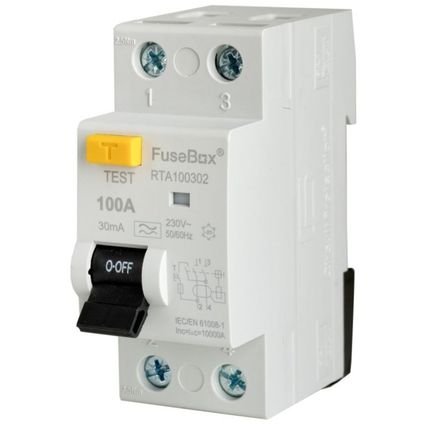In today’s modern world, electricity is indispensable, powering our homes, workplaces, and countless devices that make life more convenient and efficient. However, with the benefits of electricity come inherent risks, making electrical safety a critical concern. One of the most crucial components in ensuring electrical safety in the UK is the Residual Current Device (RCD). This blog explores the importance of RCD protection, how it works, and why it’s essential for every household and commercial building.

What is an RCD?
A Residual Current Device (RCD) is a life-saving piece of equipment designed to protect against electric shock and electrical fires. It quickly cuts off the electrical supply when it detects an imbalance in the electric current, typically within milliseconds. This imbalance can occur when a person comes into contact with a live wire, causing electricity to flow through their body to the ground.
How Does an RCD Work?
An RCD monitors the electrical current flowing through one or more circuits it protects. Under normal conditions, the current flowing in and out of the circuit is balanced. If the RCD detects a difference (residual current) between the live and neutral wires, it means that some of the current is escaping the circuit, potentially through a person or due to a fault. The RCD then rapidly disconnects the circuit, reducing the risk of serious injury or fire.
The Legal and Safety Framework in the UK
In the UK, the importance of RCDs is underscored by stringent electrical safety regulations. The Electrical Safety Standards in the Private Rented Sector (England) Regulations 2020 mandate that private landlords ensure their properties’ electrical installations are safe. The UK Wiring Regulations (BS 7671) require RCD protection for all socket outlets up to 32 amps, circuits supplying mobile equipment, and for circuits in bathrooms.
Why RCD Protection is Essential
1. Prevents Electric Shock
One of the most immediate and critical benefits of RCDs is the protection against electric shocks. An RCD can significantly reduce the risk of fatal injuries by cutting off the power within milliseconds of detecting a fault. This is particularly important in environments where children or vulnerable individuals are present, as they are more susceptible to severe injuries from electric shocks.
2. Reduces the Risk of Electrical Fires
Faulty appliances, damaged wiring, or moisture ingress can cause electrical faults that might lead to fires. RCDs play a vital role in preventing such fires by detecting faults and disconnecting the electrical supply before the situation escalates. This protective measure is essential in both residential and commercial settings, where electrical fires can result in significant property damage, injuries, and even loss of life.
3. Compliance with Safety Regulations
As mentioned earlier, adherence to safety regulations in the UK often requires the installation of RCDs. Ensuring compliance not only protects individuals but also helps avoid legal repercussions and potential fines. For landlords, compliance with RCD installation requirements is crucial to ensuring tenant safety and maintaining property standards.
4. Peace of Mind
Knowing that your home or workplace is equipped with RCD protection provides invaluable peace of mind. It assures you that proactive measures are in place to prevent electrical accidents, allowing you to focus on daily activities without the constant worry of electrical hazards.
5. Protection of Appliances and Electronics
RCDs help protect not just people, but also electrical appliances and electronics. By cutting off the power in the event of a fault, RCDs can prevent damage to devices caused by electrical surges or faults, thereby extending the lifespan of valuable equipment and reducing repair or replacement costs.

Conclusion
The significance of RCD protection in the UK cannot be overstated. As an essential safety measure, RCDs safeguard against electric shocks, reduce the risk of electrical fires, ensure compliance with regulations, provide peace of mind, and protect appliances and electronics. Whether you are a homeowner, tenant, landlord, or business owner, ensuring that RCDs are installed and functioning correctly is a crucial step towards maintaining a safe and secure environment.
Investing in RCD protection is not just about adhering to regulations; it’s about prioritizing the well-being of everyone who relies on the safety of the electrical systems in place. So, make sure to check your electrical installations and, if needed, consult a qualified electrician to install or upgrade RCD protection in your property. Safety should always be the top priority when it comes to electricity.













